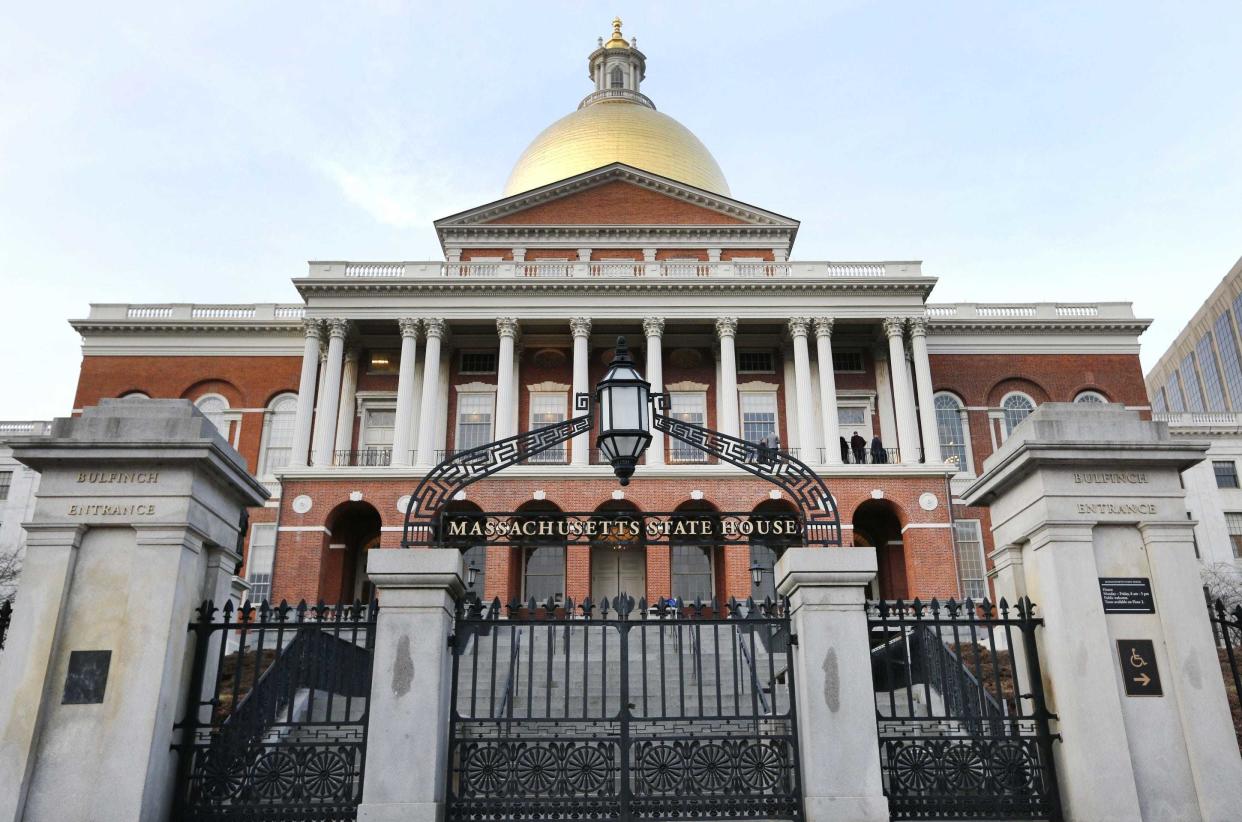Where do key bills stand in the Mass. Statehouse? Check out our legislative tracker

With thousands of bills introduced in the Massachusetts legislature each year, it can be difficult to keep track of what has passed, and what has not.
This scorecard will help you keep track of what has happened in this, the second year of the 193rd session of the General Court of the Commonwealth of Massachusetts. We'll update it as the session continues.
What bills have become law?
So far, little that could be considered major legislation has been signed into law. Bills that have passed both houses and been signed into law by Gov. Maura Healey mainly concern alcohol licenses in different municipalities, the creation of sick banks for state workers and municipal home rule petitions.
Which measures have been approved, individually, by each branch?
Gun control. The House passed its version of gun control legislation in October, and the Senate passed its version Feb. 1. Both the senate and the house have acted unilaterally different aspects of the bill as it was first filed. The two chambers must work out the differences between the two bills before final legislation can be sent to the governor.
Rainy day fund: Each branch has acted favorably to a bill filed by Healey that would use $800 million in interest accrued by the state’s $8 billion rainy day fund, to provide cash on hand to use when seeking federal funding for proposals and projects. The proposal would ensure Massachusetts has the money to satisfy requirements in many federal grant programs that states cover a portion of proposed project costs.
What has come out of the Senate?
The Senate has passed the following measures, which have not yet passed the House:
Blue Envelope Bill: Sponsored by Sen. Jo Comerford, D-Northampton, the bill would allow residents who have been diagnosed on the autism spectrum to place driving documents in a blue envelope that they can hand to law enforcement if stopped on a motor vehicle violation. The envelope would alert police to the driver’s developmental disability and the possibility that the motorist may become escalated or have alternative responses to the traffic stop.
Legalization of fentanyl test strips: Sponsored by Sen. Cynthia Creem, D-Newton, the legislation legalizes the sale, distribution and possession of fentanyl test strips and other testing equipment used to check substances for contaminants.
Wheelchair warrantee extension: Sponsored by Sen. John Cronin, D-Lunenberg, the measure would protect consumers who use wheelchairs by providing a two-year minimum warrantee that covers repairs, rentals and replacements.
Prohibiting the declawing of cats: Sponsored by Sen. Mark Montigny, D-New Bedford, the bill would prohibit the “inhumane” declawing of feline companion animals except for medical necessity.
Real estate appraisals: A bill sponsored by Sen. Cynthia Creem, D-Newton, would require all real estate appraisals be performed by licensed appraisers.
Free menstrual products: A bill sponsored by Sen. Patricia Jehlen, D-Somerville, would require that public buildings such as schools, correctional institutions and group homes to have disposable menstrual products available for use free of charge in all gender-appropriate and neutral bathrooms.
What has the House passed?
Preventing abuse and exploitation: The House reported in January that it had passed a package of bills to prevent abuse and exploitation. The legislation combines several initiatives covering issues including teen “sexting” and revenge porn. It increases criminal penalties for certain violations; extends the statute of limitations to 15 years for certain acts of domestic violence; and allows a new, nonphysical, category – coercive control – to applications for retraining orders. Coercive control can include threats to release sexual images, regulating communications and isolating someone from family or friends.
What's waiting in the wings?
Massachusetts Disaster Trust Fund: Sponsored by Comerford and championed by Healey, who included her own version of the proposal in her budget plan for next fiscal year. The $250 million fund would cover local expenses related to natural disasters and other weather events. Voted out of the Senate Committee on Agriculture.
Safe Communities Act: Sponsored by Sen. Jamie Eldridge, D-Marlborough, the bill would set uniform standards for all Massachusetts police departments that would protect the immigration status and physical location of residents interacting with law enforcement officials until their cases have been concluded. Police would be barred from reaching out to contact federal Immigration and Customs Enforcement officers to relay such information. Local law enforcement could answer questions about whether certain individuals are in custody. Once a criminal defendant has served their sentence, local officials could call ICE to remand them to federal custody.
Location Shield Act: Sponsored by Creem, the bill would prohibit the sale of cellphone location data gathered through myriad apps to brokers that aggregate and sell information. The bill is deemed to be a protection for all residents and visitors to the state, particularly members of vulnerable communities; LGBTQ+ and those seeking reproductive health care. It was heard by the Joint Committee on Consumer Protection and Professional Licensure in June.
This article originally appeared on Telegram & Gazette: Mass. legislative tracker: Status of key bills in Statehouse
